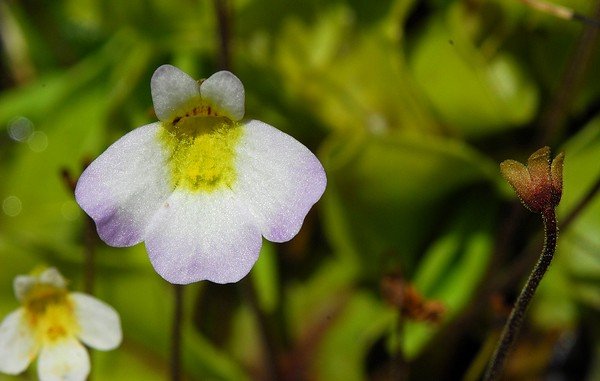Pinguicula crystallina, the only carnivorous plant endemic to Cyprus, is the agriculture ministry’s plant of the month for August.
Each month, the ministry highlights an endemic plant as part of an initiative to educate the public about Cypriot flora.
This month’s plant, Pinguicula crystallina, traps small insects in its sticky leaves, where they are gradually dissolved as the plant absorbs their nutrients.
The only insectivorous endemic plant in Cyprus, it flowers between March and October and bears fruit from July to November.
In addition, it grows between four and 15 centimetres tall with sticky leaves and small, solitary white flowers with a purplish edge.
The genus Pinguicula includes some 80 species and subspecies found across Europe, North America, and north-east Asia. In Cyprus it is represented only by Pinguicula crystallina.
The name Pinguicula comes from the Latin word for fat (‘pinguis’) because of its thick, fatty leaves, and the specific species was given the epithet crystallina because of the small crystals that form on its leaves.
In Cyprus, Pinguicula crystallina grows in relatively large quantities in seven known spots in Troodos national forest park, and one in Limassol Forest, on land that is part of the Natura 2000 network.
The largest threat to its survival is the drying up of its habitat due to drought, according to the Red Data Book of Cypriot Flora which lists it as a Vulnerable species. The plant was once thought to have been wiped out following prolonged dry periods.
Pinguicula crystallina grows exclusively on volcanic soil, and can be found in moist, rocky, or muddy spots next to waterfalls and natural springs.







Click here to change your cookie preferences